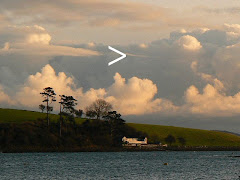Richard Milhous Nixon was born in Yorba Linda, California on 9th January 1913. He would have been ninety-eight today.
I've always had a suspicion that the Watergate scandal, as a result of which Nixon became the only president in history to resign office, could just as easily have happened on a number of other presidential watches; but that Nixon was foolish, or arrogant enough to leave an evidential trail in the form of the famous Oval Office tapes, and get caught.
His fall from grace, and subsequent rehabilitation, were authored by two unassuming men whose career paths were as different as you can imagine - and I'm not talking about Bob Woodward and Carl Bernstein of the Washington Post.
Frank Wills
The first man was a private security guard named Frank Wills, who happened to be on duty on the night of 17th June 1972 in the Watergate building in Washington, DC, home of the headquarters of the National Democratic Convention. Making his rounds, he noticed that a piece of duct tape had been placed over the latch bolt of one of the doors in such a way that the latch wouldn't close, and he removed it. A short time later, the tape had been replaced. He called the police, and five men were arrested inside the building. They had been hired to put phone taps in place, and the money trail led back to a slush fund operated by the Republican Party's Committee to Re-elect The President (or CReeP..). Eventually, through the efforts of Woodward and Bernstein and their FBI informant Deep Throat, the break-in, and subsequent attempts to cover it up, were linked to the president himself, and the writing was on the wall.
When the dust had settled, Frank Wills tried in vain to capitalise on his fame by going on the chat show circuit; but that didn't last and he never managed to hold down a steady job. After his mother suffered a stroke in the late 1970s, he devoted years to caring for her (which endeared him to me right away), but when she died in 1993 he was destitute, reduced to washing his clothes in a bucket. The T.E.A.R. (Treat Every American Right) organisation was set up by James Kilby to help him financially, but by the time he died in Augusta, Georgia in September 2007 (of a brain tumour) he was again penniless. A sad journey.
The second man, who by the stroke of a pen began the process of Nixon's return to respectability, was his successor in office - born Lesley Lynch King, Jr. in Omaha, Nebraska in the same year as Nixon, and renamed Gerald Ford when his mother divorced his abusive father and married a man named…Gerald Ford.
To outcry from all sides, Ford granted Nixon a presidential pardon in September 1974. Many said, and he always denied, that there was some kind of pact between the two men - Nixon would resign if Ford would grant a pardon - but the consensus since is that Ford, an honourable man, made the decision unilaterally and on grounds of a nice balance of pragmatism and decency. In a televised address to the nation, he said that the Nixon family's situation was " a tragedy in which we all have played a part. It could go on and on and on, or someone must write the end to it. I have concluded that only I can do that, and if I can, I must."
The controversy never went away, and it's likely that the pardon cost Ford re-election in 1976 - certainly, that's how he saw it himself. After he left the White House, he is said to have justified his decision by referring to a copy of the Supreme Court's judgment in Burdick v United States (1915) which he carried in his wallet, stating that a pardon indicated a presumption of guilt, and that acceptance was tantamount to a confession.

















